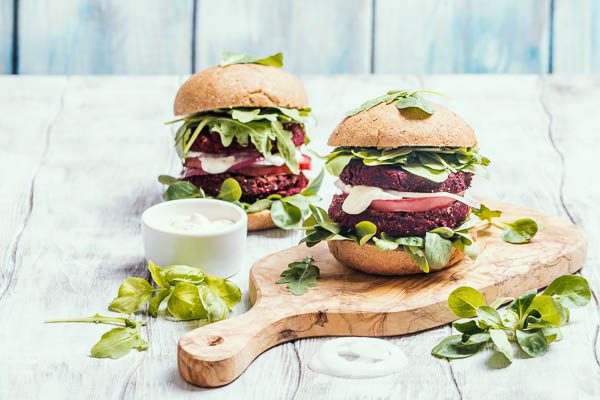
Environmental Eating
As food moves to the forefront of sustainability, we’re starting to look more critically at not just the nutritional content of our foodie buys, but their overall environmental impact too.

With our food – from what we eat to how it is grown – accounting for more carbon emissions than transport, our culinary innovators globally have been working tirelessly to play their part in rectifying industry-wide issues and seeking a more sustainable path.
We’ve already seen numerous operators removing single-use plastics, and this year we can expect to see a ton of new plant-based innovations focusing on sustainability, particularly highlighting nuts, seeds, fruit, veggies and even algae! Here are some of our favourites.
- ‘Ugly’ produce: Supermarkets and businesses aiming to reduce food waste are looking for different ways to utilise so-called ‘ugly’ produce – basically fruit and vegetables that aren’t ‘ready for prime time’. UK-based supermarket Tesco and US-based retailer Good Use have launched cold-pressed juices which utilise oddly shaped produce that would otherwise be destined for landfill, and locally, our very own Countdown has followed suit with The Odd Bunch, an initiative that packages ‘funny looking’ fruit and veggies at cheap prices – perfect for smoothies, soups and more!
- Seed butters: All hail the new nut butter! Perfect for people with nut allergies, seed butters are full to the brim with unsaturated fat, protein and tons of vitamins and minerals – plus they utilise the part of the fruit/vegetable that is commonly discarded. We’re seeing a bunch of creamy ‘butters’ made from every seed imaginable; pumpkin, sesame, poppy, sunflower, hemp – even watermelon!
- Essential oils: EPA and DHA are the primary omega 3s needed to support heart, brain, eye and maternal health, and this year they’re on the rise in the food and supplement arena, as is CBD (a non-psychoactive component of the cannabis plant) oil. Particularly gaining traction amongst vegans and vegetarians is algae oil, which is slowly appearing as the new superfood oil due to being a huge source of DHA – one tablespoon of algae oil packs the same amount of omega 3s as one whole avocado! As it is flavourless, it makes for a nutritious substitute for vegetable cooking oils like canola or sunflower.
- Blended burgers: The newest eco-food ‘blend trend’ is projected to mushroom this year, with chefs and food producers alike beginning to combine veggies and grains – such as lentils, mushrooms and quinoa – with meat for burgers that strike that perfect mark between plant-based and meat, offering non-vegetarians a tasty way to eat more plants. Blended burgers are flavourful, healthy and sustainable – the blended burger has a significantly smaller carbon footprint than a patty made of 100 percent meat. In 2018, more than 350 restaurants in the US served their take on the blended burger – and this movement is expected to grow far and wide across the planet.
- Gut health: A newfound appreciation for digestive and gut health is emerging, as we become increasingly aware of the powerful role the microbiome plays in both our physical and mental health and wellness. But it’s not probiotic pills that will be in the limelight this year, rather it’s foods and drinks jam-packed with pre- and pro-biotics that are expected to escalate in popularity – particularly items with ‘shelf-stable probiotics’, like pastas and breakfast foods (Kellogg’s is already introducing a new line of pre- and pro-biotic cereals!). Fermented foods full of these necessary bacteria (kimchi, kombucha, kefir and sauerkraut) are predicted to continue to make their well-deserved appearance on supermarket shelves over the next year.




